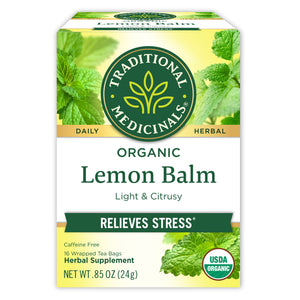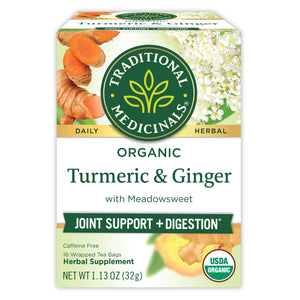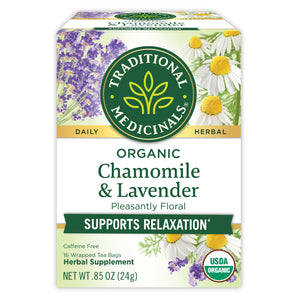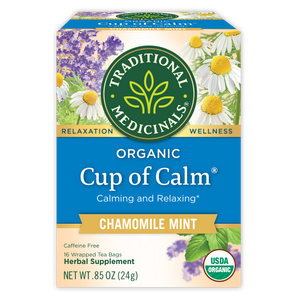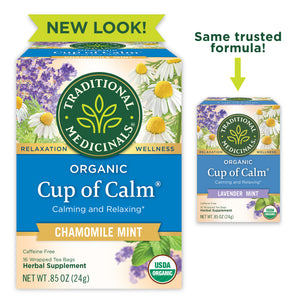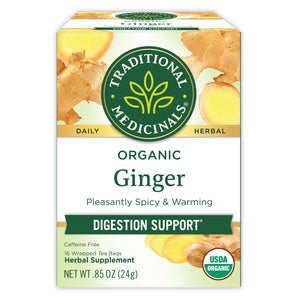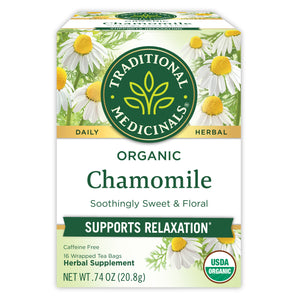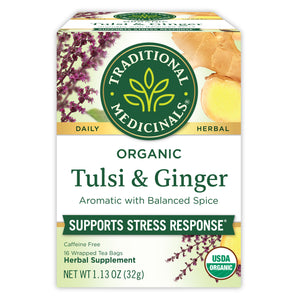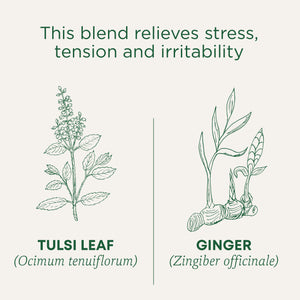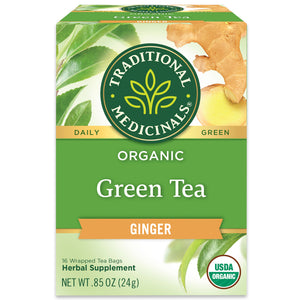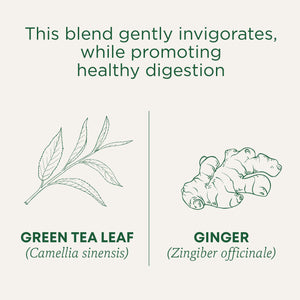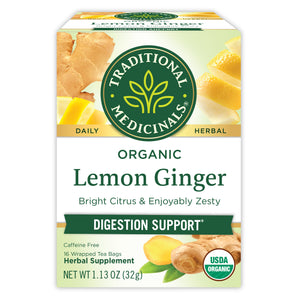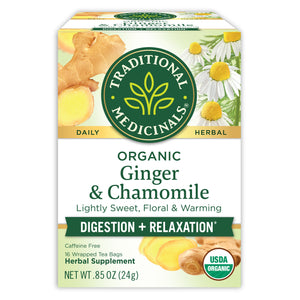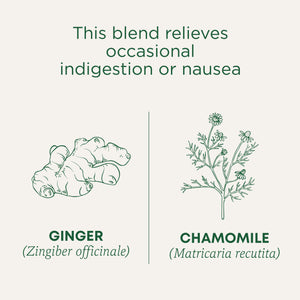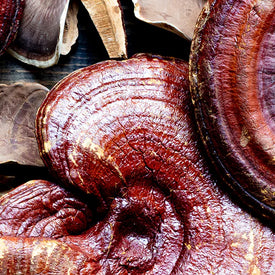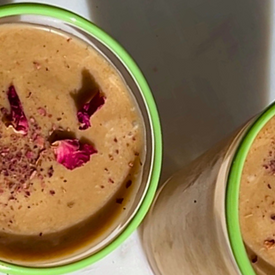Tulsi is a beloved herb of South Asia, celebrated by Ayurvedic healers for over 5,000 years for its all-encompassing, everyday health-promoting properties and is revered by Hindus as a sacred symbol of divinity. With nicknames such as “holy basil,” “The Incomparable One,” and “The Queen of Herbs,” tulsi has earned international acclaim in recent years as a support for the body’s healthy response to occasional stress — a well-needed herbal ally in our modern age.*
While healers of Ayurveda, Siddha, and Unani tend to blend tulsi with other plants in herbal preparations, most Indian families consume it traditionally as a tea, made with fresh leaves from their gardens. We’ve tapped into that traditional use with our Organic Tulsi with Ginger tea. With the addition of ginger’s digestive and warming benefits, we believe this gentle blend to be a real blessing.

Tulsi and its Sacred Uses
Tulsi (Ocimum tenuiflorum), hails from the mint family and is a native of the high-altitude foothills of the Himalayas. We source ours from organic farms in Northwestern India, where it grows up to 18 inches high and is blended with warming ginger for our formula. This highly revered plant shares its name with the Hindu goddess Tulsi (or Tulasi), a devotee of Lord Vishnu and a household deity from ancient Vedic scriptures. To solicit her protection, many households in India plant tulsi around their homes in earthen planters. In some manifestations, Tulsi is depicted as Vishnu’s wife, Lakshmi, and is celebrated on Tulsi Vivah, a day that celebrates her marriage to Vishnu, which heralds the beginning of wedding season in India and the end of seasonal monsoons. Indian customs around tulsi include putting a sprig of the plant near the head of the dying, offering a sprig to help relieve someone of their worries, daily prayers over the plant by women, garlands made of 10,000 tulsi leaves to honor Vishnu, smudging with tulsi to purify a room, and wearing tulsi stem malas during pilgrimages. Tulsi—both the plant and the goddess—have thus become nurturing symbols of the Divine Mother, longevity, and compassion.

Tulsi as an Aromatic Nervine
Tulsi’s customary uses are undoubtedly linked to its healing benefits, said to influence nearly every system of the body. While Ayurvedic healers rely on the plant for a variety of uses, tulsi’s nervine properties make this herb especially helpful in easing the body’s response to occasional stress.* In health surveys, Americans consistently cite stress as one of their top health concerns, with over half of all adults in the U.S. reporting that they experience high stress on a daily basis. Such stress can contribute to changes in mood and related symptoms. Aromatic nervines like tulsi act as a tonic on the body to restore its homeostatic balance—or physiological equilibrium—especially during peak moments of occasional stress. It is therefore unsurprising that traditional healers address so many conditions with tulsi. It seems to be divine both in lore and in practice, which early botanists must have recognized when they originally named the plant Ocimum sanctum.
With stress so prominently linked to health these days, making tulsi a part of your wellness regime can equip your body with the balance it needs to endure. Ours is some of the finest medicinal-grade tulsi available. If you haven’t yet tried our Organic Tulsi with Ginger tea, we encourage you to order here or use our store locator to find out where it’s sold near you.


